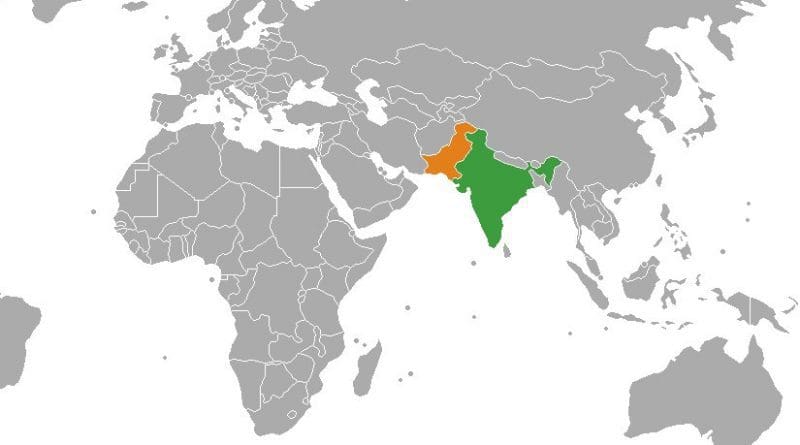Bangkok Meeting: Setting Stage For Modi Visit To Pakistan? – Analysis
By C Uday Bhaskar*
The unobtrusively arranged, below the radar meeting between the National Security Advisers (NSA) of India and Pakistan in Bangkok on Sunday (December 6) may be seen as a case of a belated but welcome review of the stalled bilateral engagement and hitting the reset key in a calibrated manner.
In an interesting departure from the traditional format wherein only one senior official from either side would form the core of the bilateral meeting, the Bangkok meeting had the NSA and Foreign Secretary (FS) from both nations engaged in a four-hour meeting .
The joint statement reads: “Pursuant to the meeting of the Prime Ministers of India and Pakistan in Paris, the NSAs, accompanied by the Foreign Secretaries, met in Bangkok today. Discussions were held in a candid, cordial and constructive atmosphere. They were guided by the vision of the two leaders for a peaceful, stable and prosperous South Asia. Discussions covered peace and security, terrorism, Jammu and Kashmir, and other issues, including tranquility along the Line of Control (LoC). It was agreed to carry forward the constructive engagement.”
Reconstructing the events of the last week one can deduce the pattern that led to the Bangkok traction, It may be recalled that the two Prime Ministers – Narendra Modi and Nawaz Sharif – met briefly in Paris on Monday (November 30) at the Climate Summit and the official statement about the hand-shake was reticent to the extreme – particularly on the Indian side wherein it was described as a “pull-aside meeting” where “courtesies” only were exchanged. Senior officials went the extra mile to brief the Indian media and assert that there were no bilateral meetings planned for the near future.
Seasoned Pakistan watchers sensed that red herrings were being deliberately strewn and Nawaz Sharif’s remarks in Urdu to his media about the Paris hand-shake that dwelt on the “doors to dialogue” being kept open seemed to indicate that something was afoot. However the speed with which the Bangkok meeting took place after the two political principals had met – a mere week – from Monday to Sunday has caught all India-Pakistan observers including the media by total surprise.
Paris is an instructive location for this resumption of engagement between the two South Asian neighbors. The French capital was subjected to a ruthless terrorist attack by the Islamic State on November 13 and this has one again triggered a global focus on the cessation of support to radical Islamic ideologies – and hence Pakistan.
It may be conjectured that Rawalpindi, the HQ of the Pakistan Army and the more relevant Sharif – General Raheel Sharif the powerful Pakistan Army Chief – has come to the conclusion that engaging with India in the backdrop of a post Paris security ambiance would be more prudent. Hence the olive branch offered by Nawaz Sharif in Malta at the Commonwealth Heads meeting (November 28) where he indicated that Pakistan was ready for resumption of talks without attaching any pre-conditions.
The sub-text of the Bangkok joint statement is to adopt an inclusive semantic, wherein the primary concerns of both countries are accommodated, viz terrorism for India and Kashmir for Pakistan and to assuage potential sensitivities by throwing in a catch-all “and other issues” clause.
The July Ufa meeting in Russia between the two Prime Ministers that had a disastrous end has been a learning curve for both countries by way of keeping the domestic media totally out of the loop. No statements were issued by either side about Bangkok till the Sunday meeting concluded and the innovative NSA-FS framework may allow for the resumption of other tracks.
Indian External Affairs Minister Sushma Swaraj will attend the December 9 regional conference on Afghanistan and popular revenue generating issues like cricket are on the anvil, even as firing across the Line of Control and infiltration continues leading to the loss of precious lives .
The bottom-line for Delhi is the nettlesome challenge of managing the South Asian neighborhood and to keep all the bilaterals on even keel and in relatively good cheer. This objective remains elusive in relation to Nepal and Pakistan remains the obdurate neighbor invested in nuclear weapon enabled terror.
Bangkok may well be the basis for negotiating a Modi visit to Pakistan for the 2016 SAARC Summit.
*C Uday Bhaskar is Director, Society for Policy Studies. He can be contacted at [email protected]

